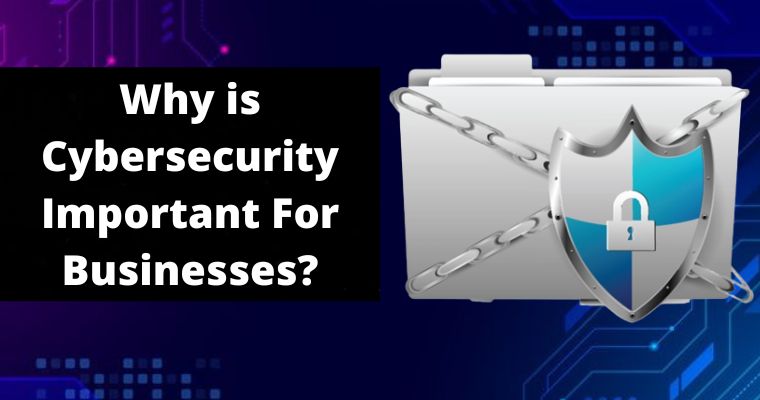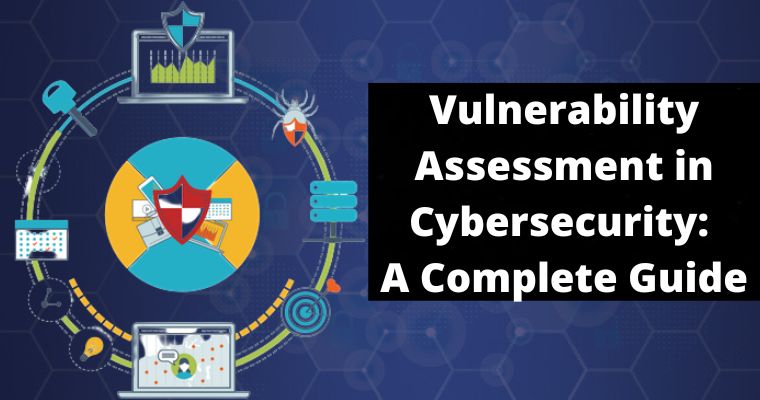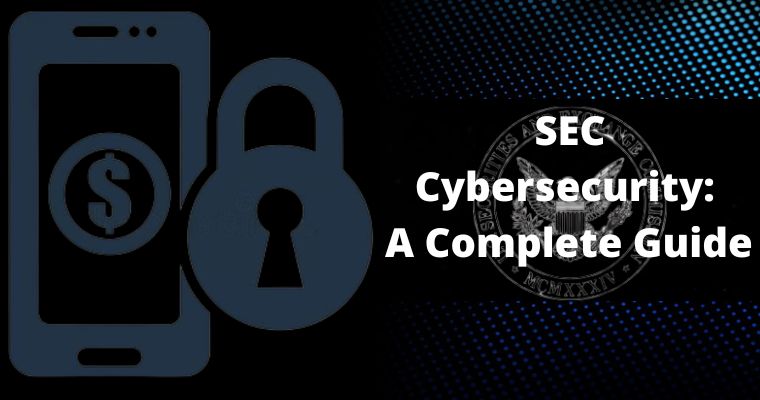Cybersecurity attacks are becoming more common over the years. With businesses relying on digital platforms to store their data, the risk of cyber threats from malicious actors is at an all-time high.
The U.N. disarmament chief even reported that the COVID-19 pandemic resulted in up to 600% of cybercrimes, not to mention that it can be very costly. According to IBM, cybercrimes are costing businesses $4.24 million; by 2025, they will cost more than $10.5 trillion a year.
Given these statistics, understanding the importance of cybersecurity and applying it to your business should be an essential factor.
As a business owner, you should have a pragmatic security program and no longer rely on simple solutions like your antivirus or firewall to protect your company, employees, and customers’ data.
But what exactly is cybersecurity? This article will dive deeply into cybersecurity, its impacts, and its importance for your business. Read on.
Table of Contents
What is Cybersecurity?
Cybersecurity consists of processes that protect and secures a business’s sensitive information from hackers through different systems.
Over the years, these hackers have had an easier time getting into the security strategies because of the adoption of new technologies and because both large and small-scale companies utilize various digital machinery for their marketing strategies, making them vulnerable to these attacks.
A business needs to adopt solid cybersecurity practices, so you can avoid encountering all kinds of cybercrime that can disrupt your daily operations. These practices include:
- Infrastructure Security
- Network Security
- Information Security
- Application Security
- Cloud Security
- Employee security training and awareness
- Disaster recovery or business continuity
What Are the Impacts of Cybersecurity?
Regardless of your organization’s size, cyberattacks can be inevitable. With many relying on cloud solutions to store data, such as Google Drive or Dropbox, cybersecurity has become a necessity rather than a privilege.
It serves as a wall between your business, clients, and customers’ sensitive information against malicious actors.
People believe that cybersecurity is quick and easy to understand. Numerous organizational structures take care of operating systems, personal information, email security, and other minor elements of online retailers.
But today’s cybercriminals are more sophisticated, and their crimes have more significant repercussions.
The loss of all sources of life can occasionally result from a single, straightforward online security breach. If a business can’t apply cybersecurity well, it can cause irreparable damage. Here are some of them:
Job Loss
The economy suffers when a company is attacked and forced to close, as jobs are lost. There have been several instances in the past years where cyberattacks have pushed businesses to close.
A typical commercial cyber security assault nowadays results in the loss of millions of jobs worldwide. Not to mention, managers are not responsible for paying these costs. Because of this, businesses have no choice but to close their doors for a while.
Second, because social media is so widely used, cybercriminals can access about anything. They may easily access your social media accounts and dump a ton of data about your customers.
Loss of Revenue
It makes sense that the goal when establishing a company is to make a profit. However, owners must prepare for unexpected losses when a business closes. A business owner may occasionally be required to repay a loan they receive from a financial institution on schedule.
Unfortunately, when a company fails, the owner must risk their assets. Search the internet for examples of similar cases from the past and read them. You might be surprised that many business entrepreneurs had to enlist the public’s assistance.
Use penetration testing services to assist in identifying security gaps and enhance company operations.
Dissemination of Sensitive Data
Nothing is more crucial to a business today than information. Hackers’ desire to obtain information from business owners is one of the main motives behind cyberattacks. Hackers are interested in public data because it may reveal various secrets about the general populace.
Therefore, if an assault occurs, millions of people’s personal information are at risk. The general public might sue you for losing their essential and sensitive information.
When this happens, you should spend money on business cybersecurity to ensure everything is protected and safeguarded.
Importance of Cybersecurity For Businesses
Boosts Productivity
Consider a scenario in which you communicate with clients via a website. Usually, customers often overlook ads on websites if they’re purchasing something.
However, there are times that they will click on it, especially if it’s enticing. Once they do and you have weak security, the website will redirect to a fake one containing viruses.
The client will leave as a result, and production drastically drops. Many companies have already experienced this. Supposing that happens, the reputation also disappears when you lose customers.
Influential customers like to patronize reputable, well-known businesses. If feedback is favorable and there are no complaints about the data breaches, the number of customers will increase.
Additionally, viruses cause your personal computers to run more slowly, which reduces your company’s total productivity.
The slow pace of business also hampers employee motivation because they know they won’t finish the task in a decent amount of time, which will result in the business’s valuable time wasted due to a halt in operations.
Maintaining Network Performance
Customers’ priority, more than ever, is receiving excellent services quickly. Constantly answering their queries and offering assistance as soon as possible will help increase the popularity of the business.
One way to achieve it is through investing in cybersecurity. By doing this, you will be able to boost your website’s quality system since most people want fast services online.
As mentioned, advertisements are popping up on websites here and there, which can be pretty infuriating for many.
Cybersecurity helps lessen these pop-ups and create an effective website for the company. Thus, resulting in meeting clients’ expectations and garnering positive reviews.
Data Protection
Many believe that our current technologies face the most significant data security challenges. There are two solutions to this puzzle.
Users initially provide personal information and payment information to the company online. It suggests they believe in you and anticipate that you will protect their sensitive data.
More and more businesses use SSL certificates to safeguard their websites. When a customer’s personal information is compromised, the company’s reputation suffers greatly.
So from a first-party perspective, a company without a robust cybersecurity system risks losing customers.
On the other hand, it’s critical to protect portable devices. The companies’ employees use personal technology, including tablets, smartphones, and other gadgets, to complete their work.
A significant portion of employees performs their tasks remotely throughout the quarantine period.
However, using personal devices also increases the chance of identity theft. For instance, connecting to a risky or open network could have adverse effects.
Create a cybersecurity policy for the business and install a VPN on all its working apps and websites. Sometimes it takes some time, but you can gauge its usefulness once it does.
Cyberattacks Costs
Businesses widely believe they can function effectively without cybersecurity since it is expensive. However, when cybersecurity safeguards are put into place, it could be one of the happiest days at your firm. It indicates that your work is secure against breaches, data thieves, and hackers.
Actual cyberattacks are stranger than imagined ones as they could vary from minor damages to the loss of your business. The breaches typically cost several thousand dollars each.
If the industry is the victim of a cyberattack, it’s necessary to compensate customers first. Would the customer use such a business again? Most probably, no.
Given these, the expense of cybersecurity neglect equals the company’s loss. Donate money to the security to preserve and advance your affairs.
Business Success and Growth
The company’s success is the result of a series of factors. The effect of security is the most important of these.
It does not change whether the quality of the services you receive improves or when you redesign your website. Once hacker attacks, it is impossible to recover data anymore.
The demands of the customers should determine the strength of the security measures. Users frequently check it on websites. To ensure the quality, they want to learn more about it. You can start providing ease in your customers’ minds by integrating these practices:
- Use anti-malware and antivirus protections for real-time protection against AI/ML technologies.
- Have a backup and disaster recovery to protect your business from unexpected cybersecurity risks.
Today’s corporate world is highly competitive. Keeping the best protection and services among competitors is an excellent option.
Conclusion
The growth of technology has kept all businesses at risk of cyber threats. A business without cybersecurity is prone to hackers stealing your information, which can lead to financial and reputation loss.
Cyberattacks also waste your efforts in building and growing the business as the costs of it can result in business closure.
Fortunately, you can avoid all these. By understanding the importance of cybersecurity for your business and adding sustainability to your business strategy, you’ll learn that there are significant ways you can do to protect your business, clients, and customers’ sensitive information from possible cyberattacks. Now, all you have to do is to take action.




